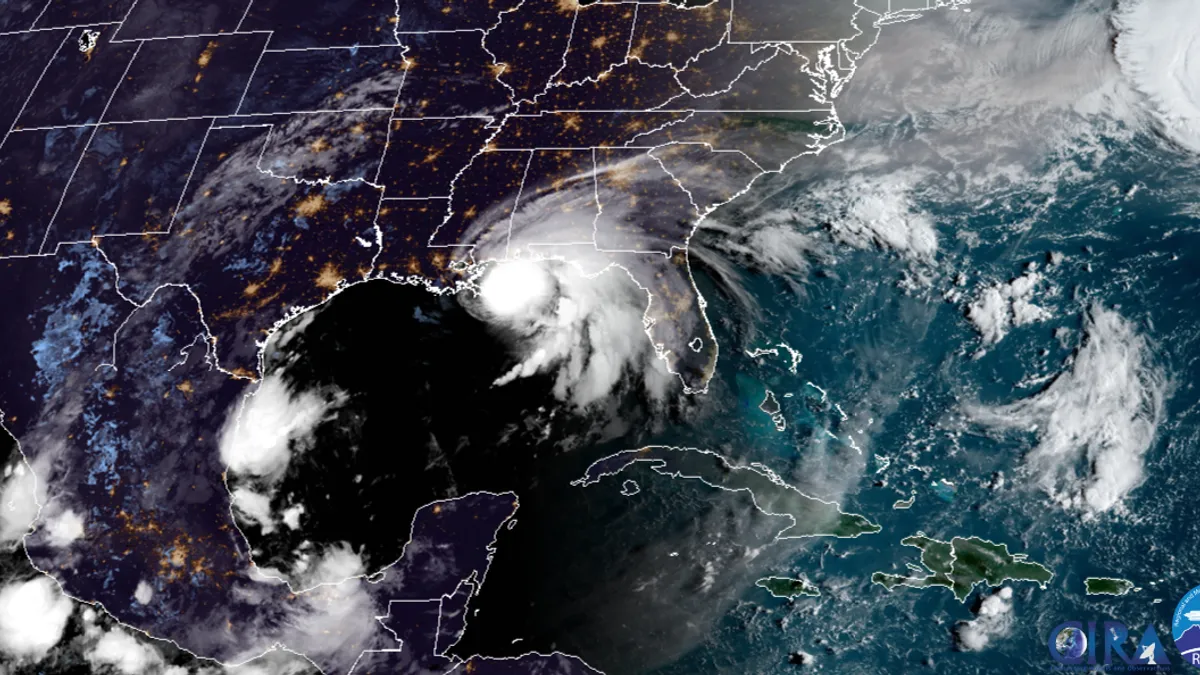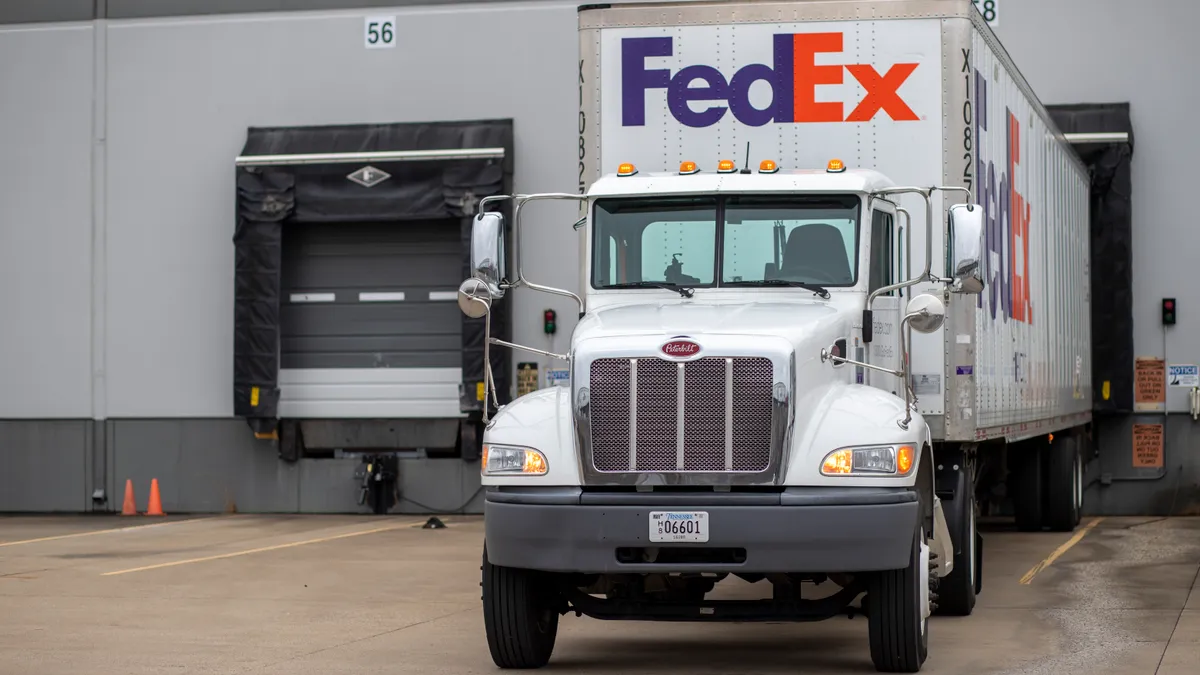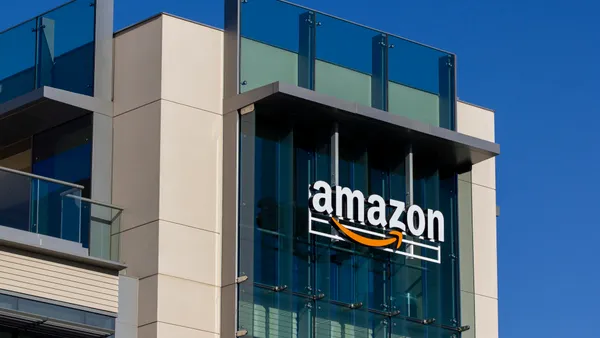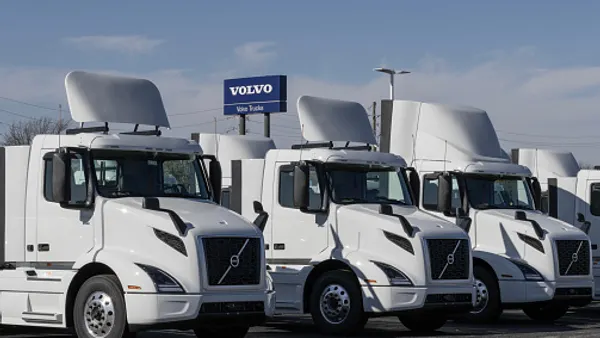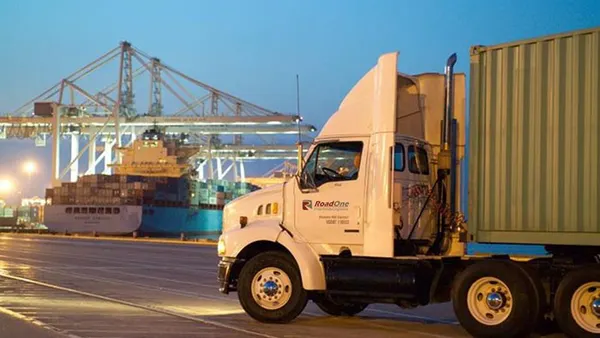UPDATE: Sept. 16, 2020: Hurricane Sally made landfall near Gulf Shores, Alabama, on Wednesday morning as a Category 2 hurricane, according to the National Hurricane Center. The storm is expected to move northeast and gain speed Wednesday and Thursday. Sally's center is expected to move across the western Florida panhandle and southeastern Alabama early Thursday, then cross central Georgia through Thursday night.
The FMCSA issued a regional emergency declaration Tuesday for Alabama, Florida, Georgia, Louisiana and Mississippi. Trucks providing direct relief assistance are relived from regulation parts 390-399, which includes HOS. The exemptions are in effect until the emergency ends or through Oct. 14, whichever comes first.
Container and breakbulk operations at the Port of New Orleans are scheduled to return to normal Friday, the port said Wednesday.The Port of Mobile in Alabama will close all day Wednesday but expects to resume normal operations Thursday, according to a notice Tuesday night.
Norfolk Southern has ceased operations at the Port of Mobile as of Wednesday in anticipation of high winds and heavy rains, according to a service alert. The railroad said customers at the Port of New Orleans should expect 48- to 72hour delays to traffic as operations return to normal over the next 24 hours.
Dive Brief:
- The ports of Mobile and New Orleans closed Tuesday, with Hurricane Sally expected to make landfall as a Category 1 storm in southeast Louisiana late Tuesday or early Wednesday, according to the National Hurricane Center. The Port of Mobile will close until at least Wednesday morning. The Port of New Orleans has been shut down since midday Monday. But a long closure is not expected, because the worst of the storm is headed east, according to Jon Davis, chief meteorologist at Riskpulse.
- The U.S. Postal Service has suspended service in affected areas of Alabama and Louisiana. FedEx has done the same in parts of Louisiana, and UPS has done so in parts of Alabama, Florida, Louisiana and Mississippi.
- Road and rail along the east-west artery of Interstate 10 is at high risk for disruption, and aftereffects from eastern Louisiana to Pensacola, Florida, may last several days, depending on the extent of any damage, according to Jonathan Porter, AccuWeather meteorologist and vice president and general manager of AccuWeather For Business.
Dive Insight:
"She is a slow mover," said Davis of Hurricane Sally. Slow movement makes it particularly dangerous. "We have not had a storm like this so far this season."
Areas in Sally's direct path can expect up to 30 inches of rain and seven feet of storm surge — especially near Mobile Bay. "Historic flooding is likely with extreme life-threatening flash flooding likely through Wednesday," according to the NHC.
The hurricane will bring winds up to 85 miles per hour, too, which Porter said is a major motivator for supply chain operators to shut down and wait it out rather than take any chances to keep freight moving anywhere near Sally's path.
"Many companies aim to ensure their transportation networks are shut down before tropical-storm-force winds begin," Porter said.
Because Sally is a slow-moving storm, Porter said to expect the come-down after landfall to last several days as the storm moves northeast.
"People and businesses should not let their guard down — dangerous flooding risks will persist," said Porter. "Most of the rainfall is expected to shift to the northern side of the circulation, and this could result in a swath of heavy, flooding rainfall from northern Alabama and Georgia, eastward through the Carolinas."
The bounce-back may also be delayed by other recent storms.
"Many areas across the Gulf Coast are still recovering from Laura and Marco, so additional heavy rain and flooding could further delay cleanup and recovery efforts," Porter said. Laura caused between $8 billion and $12 billion in damage to residential and commercial property in Louisiana, based on insurance claims analyzed by CoreLogic. Some Kansas City Southern customers in the Lake Charles, Louisiana, area were still without rail service as of Wednesday, according to CFO Mike Upchurch.
CSX, Kansas City Southern, Norfolk Southern and Union Pacific are monitoring the storm, according to customer alerts and affected railroads have ceased operations at the closed ports. Union Pacific plans to cease operations at its Avondale, Louisiana, intermodal terminal as the storm passes.
S.L. Fuller contributed to this report.



